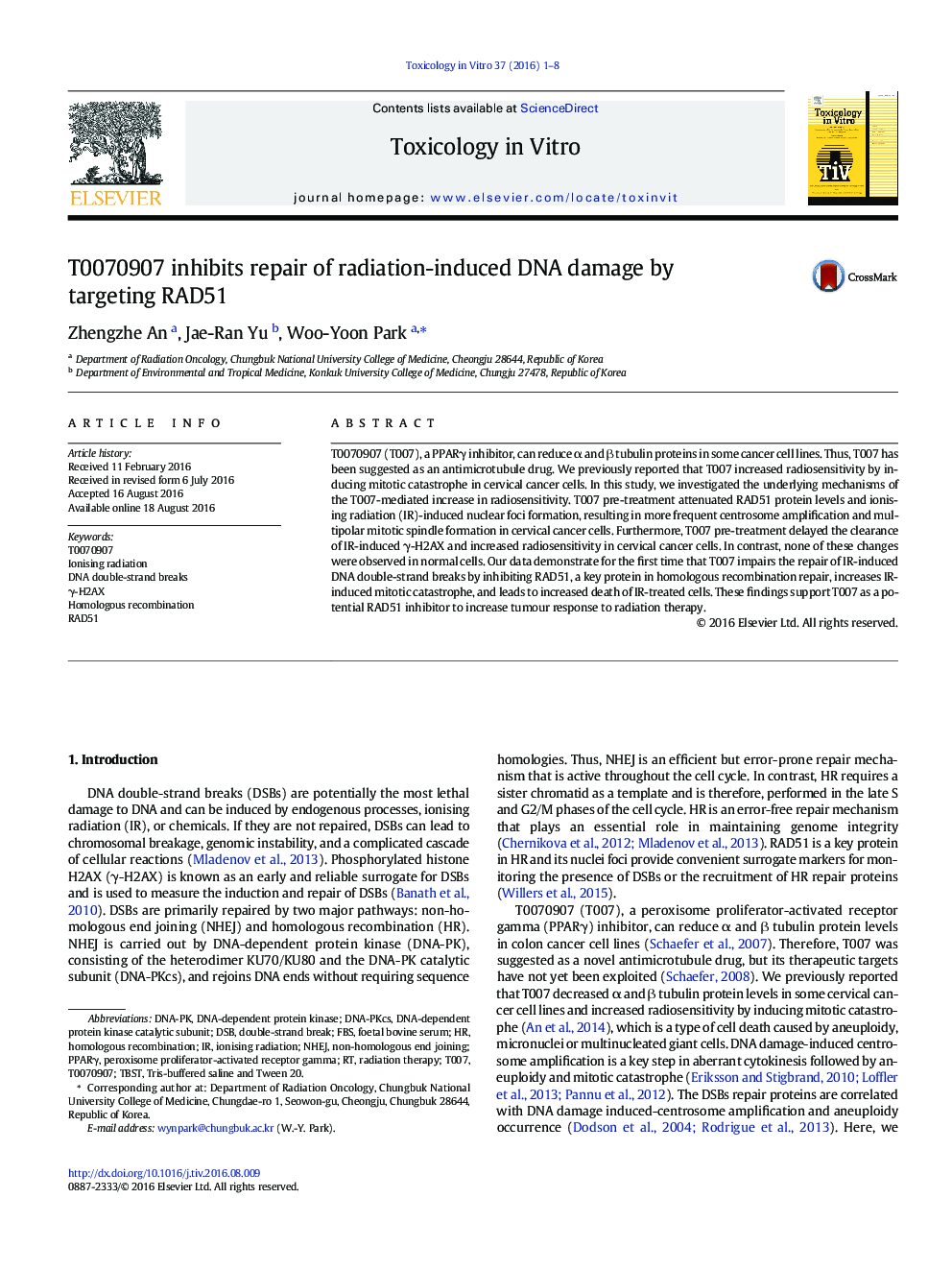| Article ID | Journal | Published Year | Pages | File Type |
|---|---|---|---|---|
| 2602400 | Toxicology in Vitro | 2016 | 8 Pages |
•T007 attenuates IR-induced nuclear expression of RAD51.•T007 increases IR-induced centrosome amplification and multipolar mitotic spindles.•T007 delays the clearance of IR-induced γ-H2AX formation.•T007 is a potential RAD51 inhibitor to increase tumour response to RT.
T0070907 (T007), a PPARγ inhibitor, can reduce α and β tubulin proteins in some cancer cell lines. Thus, T007 has been suggested as an antimicrotubule drug. We previously reported that T007 increased radiosensitivity by inducing mitotic catastrophe in cervical cancer cells. In this study, we investigated the underlying mechanisms of the T007-mediated increase in radiosensitivity. T007 pre-treatment attenuated RAD51 protein levels and ionising radiation (IR)-induced nuclear foci formation, resulting in more frequent centrosome amplification and multipolar mitotic spindle formation in cervical cancer cells. Furthermore, T007 pre-treatment delayed the clearance of IR-induced γ-H2AX and increased radiosensitivity in cervical cancer cells. In contrast, none of these changes were observed in normal cells. Our data demonstrate for the first time that T007 impairs the repair of IR-induced DNA double-strand breaks by inhibiting RAD51, a key protein in homologous recombination repair, increases IR-induced mitotic catastrophe, and leads to increased death of IR-treated cells. These findings support T007 as a potential RAD51 inhibitor to increase tumour response to radiation therapy.
